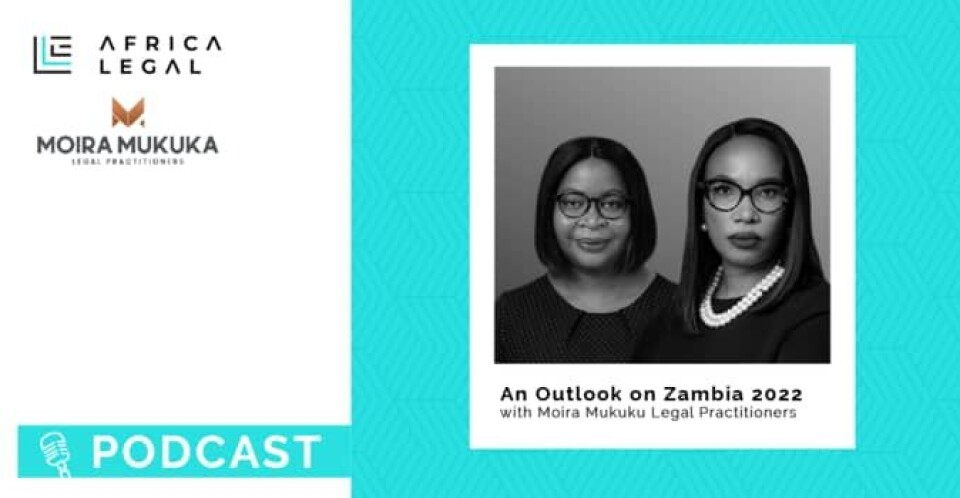Copyright : Re-publication of this article is authorised only in the following circumstances; the writer and Africa Legal are both recognised as the author and the website address www.africa-legal.com and original article link are back linked. Re-publication without both must be preauthorised by contacting editor@africa-legal.com
An Outlook on Zambia 2022

Infamous for its debt burden, plans to turn around Zambia’s fortunes are in the pipeline following the election of a new government. Brenda Mutale Chanda and Sharon Sakuwaha, co-managing partners at Moira Mukuka Legal Practitioners, chatted to Africa Legal on the renewed optimism among its citizenry.
The high turnout by the youth aged 18 to 35 in Zambia's general election held in August, heralded a regime change which has put President Hakainde Hichilema in power. The main driver for the change, according to Chanda, was the rapidly declining economic situation that the country went through in the recent past, leading to Zambia being Africa’s first pandemic-era sovereign to default. The lack of employment opportunities for the youth was worsened by the pandemic, she said.
“The other factor is the lack of access to finances for this demographic which is mainly in the small and medium sized enterprises sector, so you find that this causes a lot of frustration among the young people and ultimately translated into a change of government,” Chanda commented.
It’s now up to the new government to stimulate growth and transform the economy, Chanda believes. “The policies of the current government have been stipulated in the budget that was presented to parliament recently, and the focus is economic transformation, job creation and value addition in the key industries that drive the Zambian economy. These sectors include mining, agriculture, tourism and energy.”
In the podcast Chanda shared further insights on policies and initiatives that are needed to bring about economic transformation, job creation, and an enabling environment for business.
Sakuwaha offered her perspective on the bottlenecks that have previously prevented Zambia, the second largest producer of copper in Africa, from fully harnessing its potential. She listed the inappropriateness of the fiscal regime and the inconsistencies around its implementation as among the problems. However, she says, reforms are being put in place.
“Mining is a long term, complex activity that's very capital intensive and one really has to take a long term view. So far, the government seems to recognise this and so there have been pronouncements made to review the mining tax policy and regime in order to increase investment in the sector.”
Sakuwaha elaborated on how the debt burden and the finance infrastructure gap can be addressed and how this will come into effect. Her conversation with Africa Legal ended with a discussion on green finance and renewable energy, a hot topic presently being highlighted at COP26.
Listen to the podcast on SoundCloud, Spotify or Apple
To join Africa Legal's mailing list please click here
